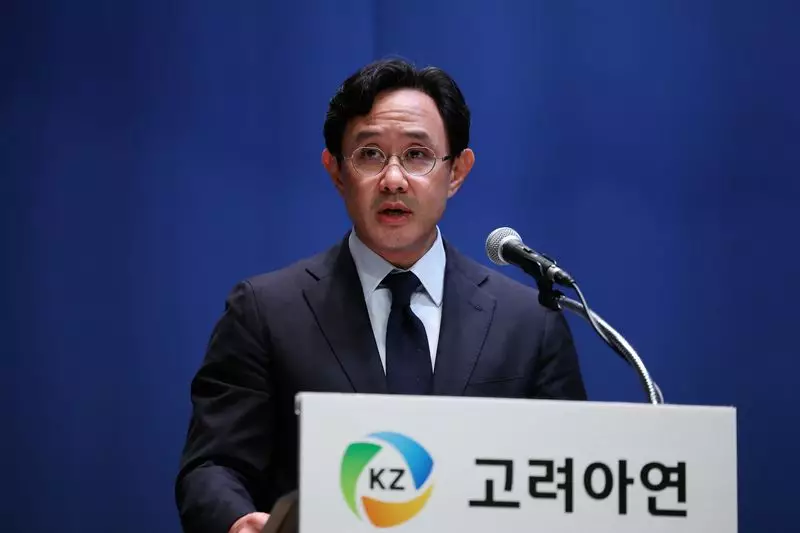Korea Zinc, the world’s largest zinc refiner, has found itself in a precarious position following its recent decision to abandon a significant share issuance plan worth $1.8 billion. Initially aimed at strengthening its financial position amidst rising competitive pressures, the strategy quickly backfired, igniting both regulatory scrutiny and a tumultuous reaction from investors. This article explores the implications of this unexpected withdrawal, the ensuing tensions within the company, and the broader context of the ongoing shareholder battle that is shaping Korea Zinc’s future.
On October 30, Korea Zinc announced it would issue new shares equivalent to nearly 20% of its existing total. The timing of this announcement raised eyebrows, especially since it followed a stock buyback at a higher price only two days prior. The market responded with volatility, and soon after, the company faced an investigation from South Korea’s Financial Supervisory Service (FSS), which sought to determine if there were any unfair practices involved in the planned issuance. The stock initially rose by 6% after the share issuance was withdrawn but soon plummeted by 7%, reflecting the investors’ uncertainty and dissatisfaction with the leadership’s decision-making process.
In a statement issued by Korea Zinc, leadership acknowledged the concerns expressed by the market and shareholders, indicating a willingness to re-evaluate their approach. “We have decided to humbly accept concerns from the market and shareholders,” the company stated, emphasizing the commitment to present a coherent long-term vision at the upcoming shareholder meeting. This reflexive maneuver suggests that management has recognized the critical nature of stakeholder perception in maintaining their legitimacy and authority amid increasing opposition.
At the heart of Korea Zinc’s turmoil is an escalating takeover battle between rival parties, chiefly Young Poong and private equity firm MBK Partners, who have attained nearly a 40% stake through a well-timed tender offer. This challenge against Chairman Yun B. Choi’s stewardship has heightened tensions within the company and prompted both sides to mobilize for a decisive shareholder meeting slated for early next year. The political landscape is precarious, as both factions vie for control over strategic decision-making amid a changing market climate.
In an attempt to tilt the scales, Young Poong and MBK Partners have initiated legal proceedings to enable a special shareholder meeting where they intend to nominate 14 new board directors. This move could potentially shift the power dynamic and allow them to consolidate their influence within Korea Zinc. On the other side, Choi, a prominent figure and a law graduate from Columbia, is also expected to exhibit his strategy to counter this encroachment by nominating independent directors. This strategic positioning speaks volumes about the ongoing governance struggles, as both sides seek to appeal to significant stakeholders like the National Pension Service, which holds a substantial share.
Despite the tumult, Korea Zinc has indicated its intent to pursue enhanced board independence and overall improved governance. However, the lack of specificity in their plans raises questions about the efficacy of these initiatives. Stakeholders remain cautious as they await further details regarding the strategic direction of the company, with the potential for either reconciliation or further division looming large over the upcoming meeting.
The debacle surrounding Korea Zinc’s share issuance plan serves as a stark reminder of the volatility that can accompany aggressive corporate strategies, particularly in tumultuous market environments. Moving forward, the company must adeptly navigate the complexities of internal strife and external pressures. As they brace for the impending shareholder meeting, the outcomes may not only influence the fate of Korea Zinc but also set precedents for shareholder engagement and corporate governance protocols in South Korea’s rapidly evolving business landscape. The stakes have never been higher, and the company’s next moves will be pivotal in determining its trajectory amidst a backdrop of intensified competition and scrutiny.

